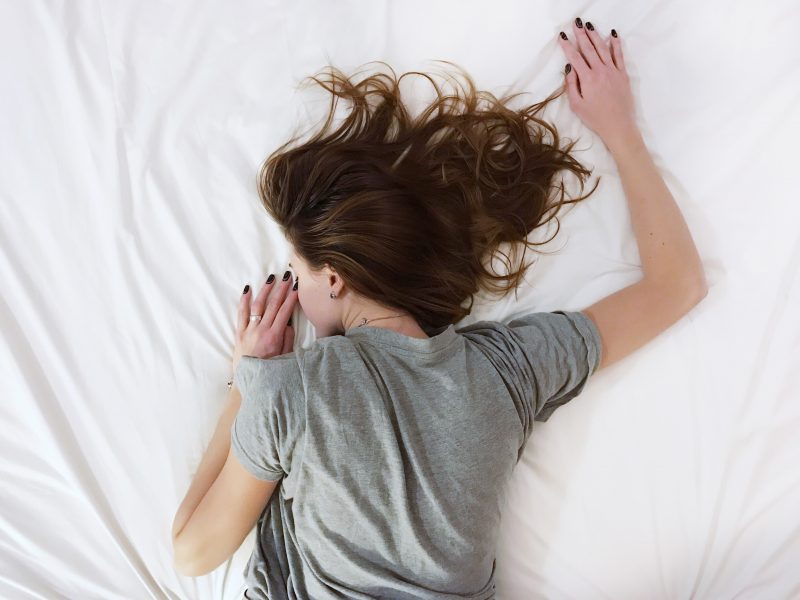We all know how it feels after a terrible night of sleep. But if you’re having more bad nights than good, it can have a massive impact on your health. Try these 5 tips to get a great snooze every night.
Time your caffeine right
There’s nothing wrong with enjoying caffeine in moderation. Green tea for example provides antioxidants called catechins that are great for our health. But caffeine can stay in your system for a good amount of time.
The half-life of caffeine – how long it takes to eliminate half of the caffeine – is around 5 hours. So if you have a double-shot coffee at 3pm, you still have the equivalent of one shot of coffee in your system by 8pm.
Some people are more sensitive to caffeine than others. This depends on how quickly you metabolise it – some people can still feel wired after over six hours. If you’re experiencing sleep issues, try drinking your coffee only in the morning for a few weeks.

Minimise any bright light at night
When we used to live in caves, the sun going down would be the end of our day. But when we come home these days, we have bright lights in every room.
If you’re exposed to bright light, your body thinks that it’s daytime. This can switch off production of your main sleep chemical, melatonin. So when you go to lie down in the dark, it can take hours for your body to get the message that it’s time to sleep.
This doesn’t mean you have to go stumbling around in the dark. But you might want to switch from overhead lights to lamps in the evening, and turn off any lights that aren’t necessary.
The same goes for technology like TV, tablets and smartphones. It’s best to have a minimum of 30 minutes tech-free before bed. I aim for around 1 hour each night before bed. Reading an old-fashioned paperback is a great way to unwind without the blue light from a screen.
You can also use blue blocking glasses or apps, like f.lux to reduce the impact if you have to use technology. Many products such as android phones and windows now have inbuilt options for night-lights.

Find a way to de-stress
A common cause of poor sleep is high stress levels. You lie down for the night, only to have a million thoughts and to-do items rush through your mind.
There are dozens of ways to reduce stress naturally – it depends on what you prefer. Some ideas might be:
- Talking with a partner or friend about your day
- Journaling
- Meditation
- Yoga – upside down on the bed with legs up the wall is a good way to spend 5 minutes at the end of the day. I love Naturopathic Yoga.
- Qui Gong or Tai chi
- Sipping a cup of herbal tea
- Having a warm shower
- Going for a walk around the block
- Read a chapter of a book.
Have regular sleep and wake times
Waking up at the same time each day has been shown to be the most reliable way of improving sleep patterns. The leisurely sunday sleep in can often disrupt our sleep cycle, setting us backwards. Avoid naps as these can make it harder to fall asleep that evening.
Aim to get to bed before 10.30 – 11 pm every night as this is when your melatonin starts to dip, and the second wind kicks in. Make sure you allow a good eight hours of rest before you need to wake up.

Create a night-time ritual
Habits and routine can tell our bodies what we’re likely to do next. A good way to ‘train’ your body to sleep at the correct time is to have a routine that you do each night before bed.
This routine can be as little as 30 minutes. Maybe you have a shower and change into your pyjamas, then make a cup of sleep-blend tea. As you sip your tea, you might review your to-do list for the following day. Make your breakfast or lunch for the next day and pop it in the fridge. Maybe you set out your clothes for tomorrow mornings yoga class.
If you make small habits that support sleep part of your regular routine, you’re more likely to get a good night sleep on a regular basis.
If you’re constantly struggling to sleep, it’s important to create a diet and lifestyle to support good sleep. Book an appointment to get your diet and your sleep back on track.

 Low histamine – PMS busting – bircher muesli recipe
Low histamine – PMS busting – bircher muesli recipe